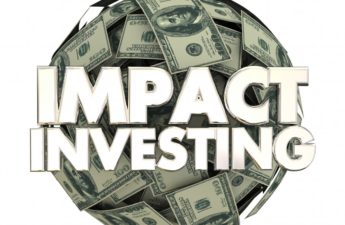“Chance favors the Prepared Mind” – Louis Pasteur We’ve all heard that saying but often do not know who originally said it. I think that saying is somewhat misleading. Taken out of context. The entire quote is actually quite different: “Where observation is concerned, chance favors the prepared mind.” People have mostly heard only the last part of that quote. Be prepared and when luck presents an opportunity not only will you notice it, but be able to act on it. That misses the observation part. Observation is extremely important – without doing a good job of observing to recognize…
Author: Gregory Pearl
Luck and U
The relationship between our awareness of the roles of luck (chance) and skill yields a horseshoe. It’s a U curve. Assume there are different levels of skill at a task, profession, trade, or whatever. As a person progresses in their skill, their attitude towards luck and chance changes. It starts out where the beginner feels they have no impact on the outcome. Next, after gaining skill the person may become overconfident and feel they are in command. Skill conquers all. Luck doesn’t play a role. The highest level of skill – mastery – is realizing that the more they learn…
Streaks and Probability. Does the “Hot Hand” exist?
In a previous post, I talked generally about the usefulness of gaming theory for business decision-making. The situation where a gaming sponsor – the casino – controls all aspects affecting the outcome. To the determinant of the ‘player.’ There are many mental traps decision-makers fall into that create bad decisions. A lack of understanding of probability and statistics is a big one. Let’s examine “streaks” and “hot hands”. Statistics students are taught about the normal distribution. Investopedia defines a normal distribution as “a probability distribution that is symmetric about the mean, showing that data near the mean are more frequent…
Luck, Casino Gambling and Decision Making
I’ve known a few people with gambling problems. Some research indicates that 4% of active gamblers develop a problem. A gambling problem is never good. Observing their gambling issues stimulated my interest in the psychology of gambling and how it affects those people. More interesting is how the same psychological traps that gamblers fall into also affect business decision-making in a broader sense. There is a wider application than just the “controlled” setting of gambling games. Decision theorists have developed an entire field of study called Game Theory that, in part, looks at this. Applying game situations and their related…
Sky High Prices To Buy A Company? What Can Buyers Do?
When an economy is growing and strong, the prices of companies for sale tend to rise. Sometimes a company is priced in a high range even if the overall economy is weak. Higher prices mean higher risk for everyone but especially for financial acquirers. Sky-high prices decrease the chances that the deal will close. What can a buyer do in these circumstances especially when only limited capital is available? Add some sort of unique value? Only invest in a minority stake? Buyer smaller companies? Joint Ventures? Maybe some sort of creative structuring? Here are some more ideas: First, buyers should…
Another Way To Decide If Debt is Worth It
As Warren Buffet said, “the only way smart people go broke is through leverage”. But how smart people get to the point where they go broke is an interesting study in psychology. The trick is knowing how to balance off the risks and rewards. The most important factor to consider is that the amount of the debt needs to be less than the value of the reason why you took it on. Here is a consumer example: one individual took on a six-figure student loan debt to gain a professional credential in a low-paying niche healthcare field. The field is…
Does Impact (Social Good) Investing Work? Why Not?
Are you skeptical of Social Investing? Does ESG (Environmental, Social and Governance) investing actually create value and achieve the social good it claims? Is investing and managing for the overall Social Good affected by the American business culture? Some may think these questions are controversial. Capital flows continue to flow into ESG oriented funds but these have not performed as well as those that do not have the same investment policy. Note the commentary of none other than Aswath Damodaran, professor of valuations at NYU Stern school of business. On his blog he states: “Companies have come under pressure to…






